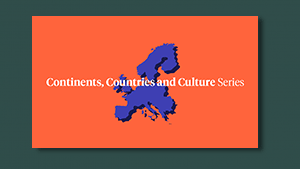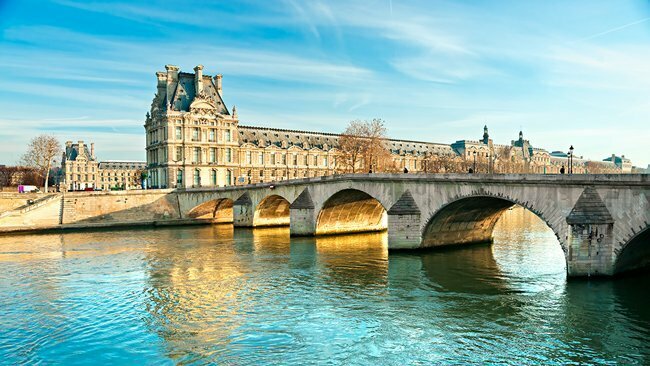France Country Culture, Customs & Traditions

The country of France has a long and eventful history; the culture is rich and diverse, with influences from many different regions and historical periods. France is famous for its art, literature, philosophy, fashion, cuisine, and wine. Additionally, the idea of “joie de vivre” (joy of living) is an important aspect of French culture. It can be seen in their appreciation for leisurely activities such as enjoying a café au lait (coffee) or a glass of wine with friends.
Over the centuries, several historical provinces and overseas colonies have been incorporated into and acquired by France. The country now has many foreign languages, ethnicities, and religions. Below is an overview of France’s culture, customs, and traditions.
France Demographics
France, the largest country in Western Europe, is often referred to as a hexagon due to its six-sided shape. France covers an area of 549,087 km2 (212,004 mi2) and has a coastline of 3,427 km (2,129.4 mi), approximately 79% of the size of Texas, making it the third largest country in the whole of Europe. The capital of France is the beautiful city of Paris, which is also the nation’s cultural center.
Population of France
The estimated population of France is 68,042,591 (as of January 2023), which is approximately 0.89% of the world’s population. Population statistics have estimated that 87.8% of these citizens are French-born, while 4.8% acquired French citizenship after birth. The Institut National d’Études Démographiques (IRED) 2020 figures state that France’s most common foreign-born nationalities are Algerian, Moroccan, Portuguese, Tunisian, Italian, Turkish, and Spanish.
Languages of France
French is the official language of France, which is spoken by the majority of the population. However, several regional languages are spoken in some parts of the country, such as Breton in Brittany, Occitan in the Midi-Pyrénées and Languedoc-Roussillon regions, and Alsatian in the Alsace region. Many immigrant communities in France speak languages other than French, such as Arabic, Chinese, and Spanish.
Religion in France
France has a strict secularism policy, known as ‘laïcité. This constitutional principle means that the government is separate from religious institutions and does not support or recognize any religion.
Most of the population identifies as Christian, with the largest denomination being Roman Catholicism. However, the percentage of people identifying as Catholic has decreased in recent years, and a growing number of people now identify as non-religious or atheist. There are also significant Muslim, Jewish, and Buddhist communities in France.
Family Life in France
 Family life is the backbone of French culture, with a strong emphasis on nuclear families (two parents and their children). The typical French family enjoys a good work-life balance, allowing them time to socialize, eat together, and sleep.
Family life is the backbone of French culture, with a strong emphasis on nuclear families (two parents and their children). The typical French family enjoys a good work-life balance, allowing them time to socialize, eat together, and sleep.
In France, the family unit is highly valued, and many prioritize spending time with their loved ones. Extended families often live close to one another, and relatives share a strong sense of community. Families in France also tend to be relatively small, with an average of one child.
Art and Architecture in France
France has a rich history of art and architecture and is famous for its paintings, sculptures, and photography. French Impressionists such as Claude Monet and Edgar Degas helped revolutionize the art world in the 19th century with their innovative techniques and bold use of color. French sculpture also has a long history dating back to the Renaissance, with notable French sculptors including Auguste Rodin and Aristide Maillol.
France boasts several architectural styles, including Gothic. The Notre Dame Cathedral in Paris and the Chartres Cathedral in Chartres are both famous examples of Gothic architecture. In the 17th and 18th centuries, the French Baroque and Rococo styles were developed, including the Château de Chambord, built during the French Renaissance. Modern architecture grew in the 19th and 20th centuries, with genius architects such as Gustave Eiffel and Le Corbusier dominating the scene.
French Food
French cuisine is among the finest in the world and is characterized by its use of quality ingredients, attention to detail, and beautiful presentation. A traditional French meal consists of several courses: an appetizer, a main course, cheese, and dessert. Regional specialties include ratatouille from Provence, bouillabaisse from Marseille, and coq au vin from Burgundy, as well as delicious French pastries, cheeses, and wines.
French culture has a strong emphasis on social interaction – the French love to indulge in a relaxed and leisurely mealtime so they can savor and enjoy their food.
French Fashion
French fashion dates back as far as the 17th century, with the French owing their chic style to Louis XIV, who reigned from 1643-1715. Louis had lavish tastes, reflected by the opulent Palace of Versailles. As a result of his exquisite attire, the monarch introduced the textile trade to France, which soon became the global authority on style.
Nowadays, thanks to its strong fashion culture, elegance, sophistication, and meticulous detail, France has made its name as the world’s top fashion capital. Paris is home to many famous fashion houses, such as Dior, Hermes, Louis Vuitton, and Chanel. Furthermore, it is home to Paris Fashion Week, where French and international designers show off their latest trends and designs.
Doing Business in France
Doing business in France can be both challenging and rewarding. On the one hand, the country boasts a skilled workforce, a large consumer market, a favorable business environment with a relatively low corporate tax rate, and access to European Union markets. On the other hand, French bureaucracy and regulations can be complex and time-consuming, and the labor market can be rigid with strong worker protections. Cultural differences may also present challenges for foreign businesses, particularly in negotiation and communication. In general, it is crucial for companies to have a clear understanding of the French market and to be prepared to navigate its unique challenges to be successful.
French Holidays and Celebrations
France celebrates a variety of public holidays and celebrations throughout the year. Some of the main holidays include:
- New Year’s Day (January 1st): A public holiday celebrated with fireworks and parties.
- Easter Monday: A Christian holiday that falls on the Monday after Easter Sunday.
- Labor Day (May 1st): A public holiday celebrating workers and their rights.
- Victory in Europe Day (May 8th): A public holiday marking the end of World War II in Europe.
- Bastille Day (July 14th): A national holiday celebrating the storming of the Bastille during the French Revolution.
- Assumption of Mary (August 15th): A Christian holiday celebrating the assumption of the Virgin Mary into heaven.
- All Saints’ Day (November 1st): A Christian holiday honoring all saints, both known and unknown.
- Armistice Day (November 11th): A public holiday commemorating the end of World War I.
- Christmas Day (December 25th): A Christian holiday celebrating the birth of Jesus Christ.
In addition to these holidays, France celebrates several festivals and celebrations throughout the year, such as the Cannes Film Festival, the Tour de France, and the Fêtes des Lumières (Festival of Lights) in Lyon.
Common French Language Expressions
The top 10 most common French language expressions are as follows:
Bonjour: Hello
Au revoir: Goodbye
S’il vous plaît: Please
Merci: Thank you
Excusez-moi: Excuse me
Comment ça va?: How are you?
Je ne comprends pas: I don’t understand
Je suis désolé: I’m sorry
Oui: Yes
Non: No
These are the most common French expressions used daily, and they are a good starting point to help anyone get by in basic conversation.
Translation for French Market
Translating for the French market allows companies to reach and effectively communicate with a wider audience, leading to increased sales and brand awareness. Additionally, by providing translated marketing materials, companies demonstrate a commitment to inclusivity and cultural sensitivity, improving their reputation and customer loyalty.
At GPI, we have extensive experience in the French market. Our talented French translators can assist you with your French marketing materials and work closely with you on a wide range of translation projects, including software and website localization.
